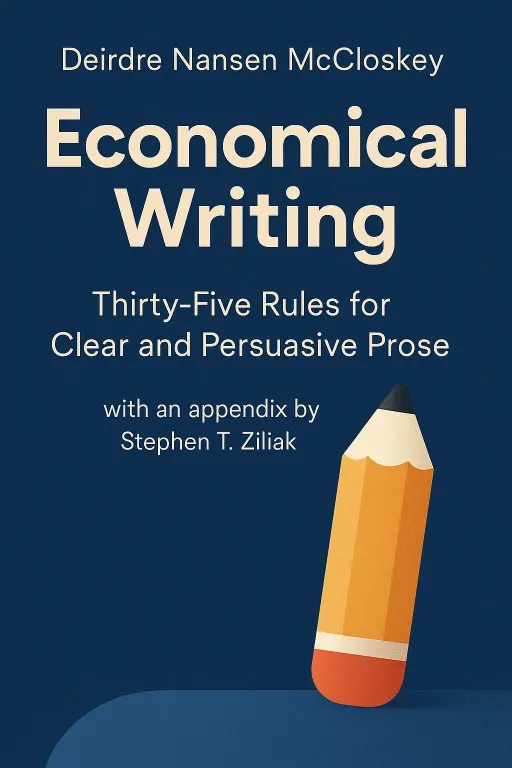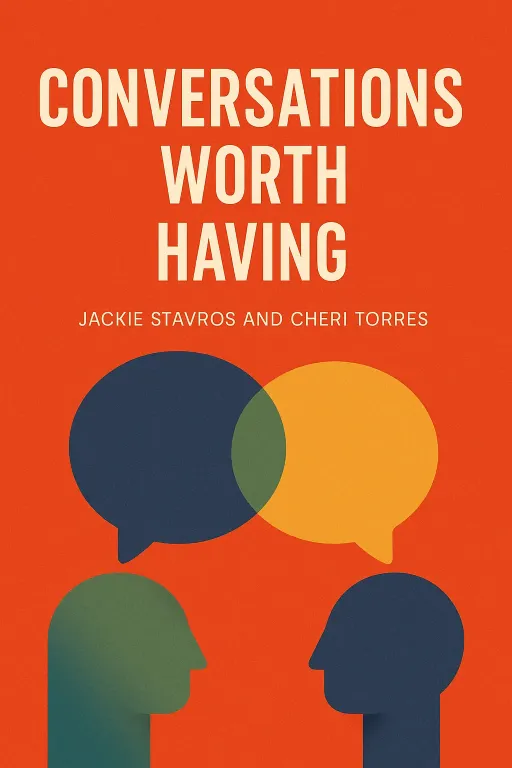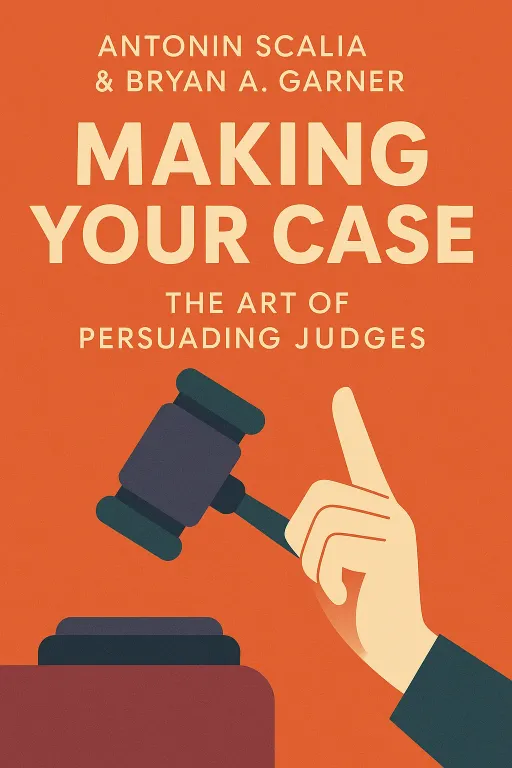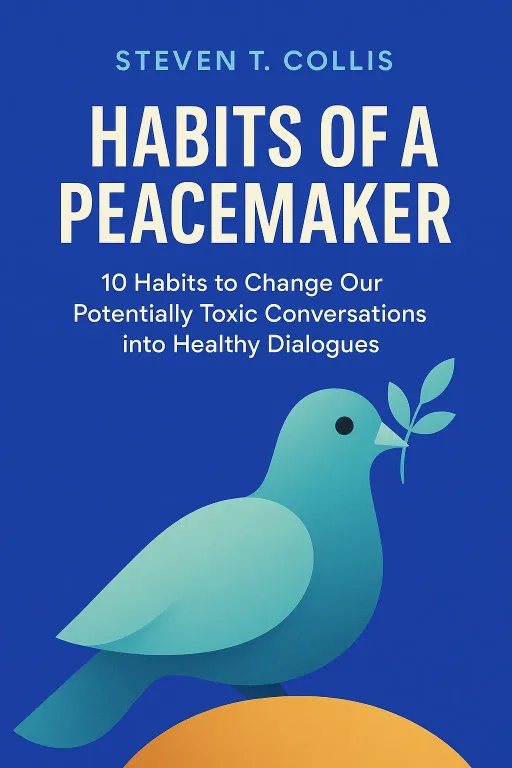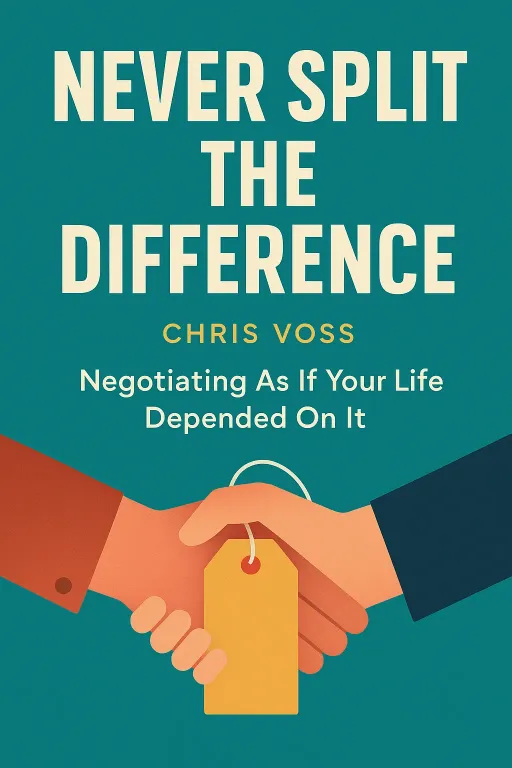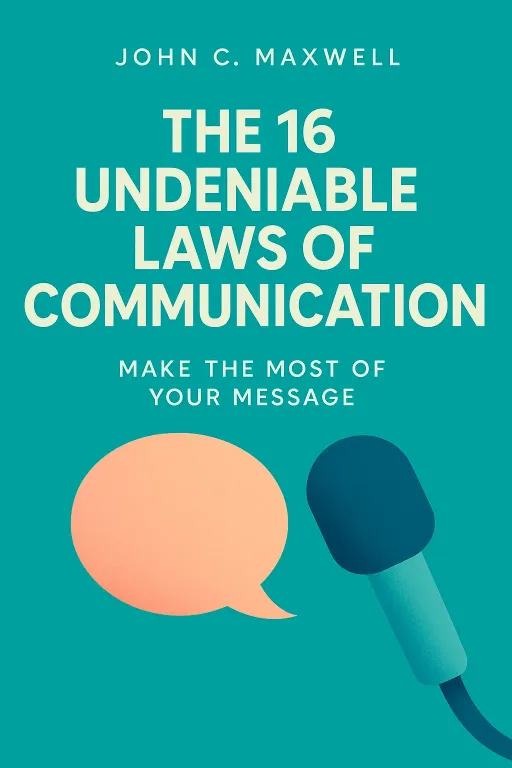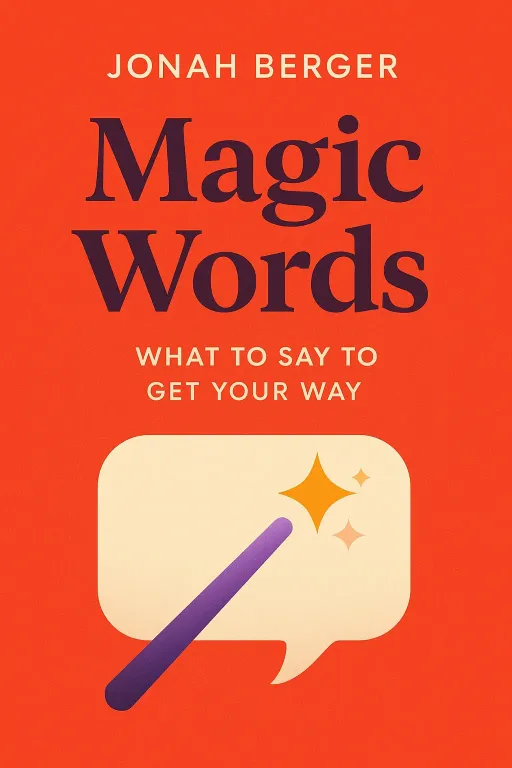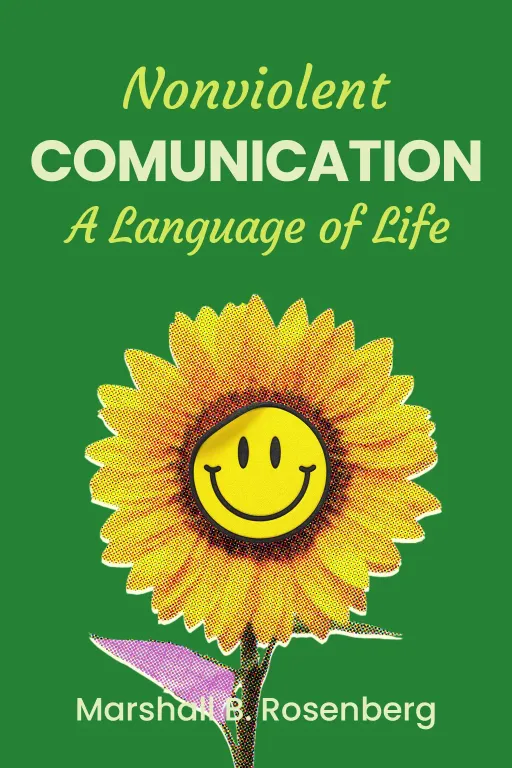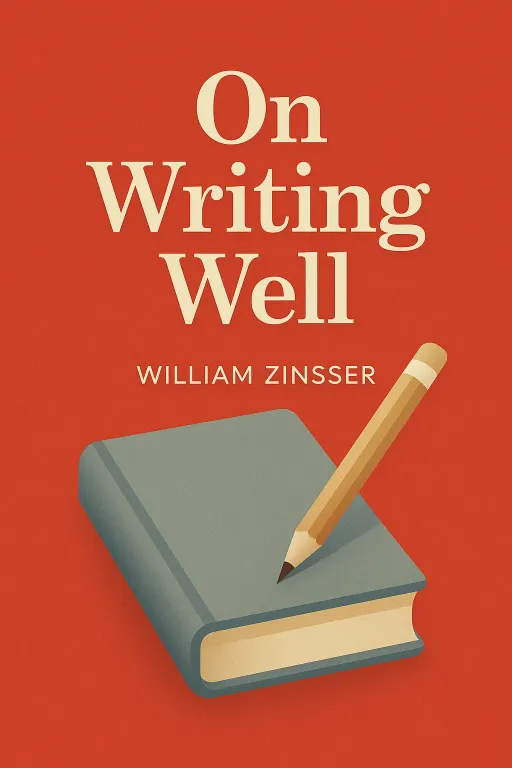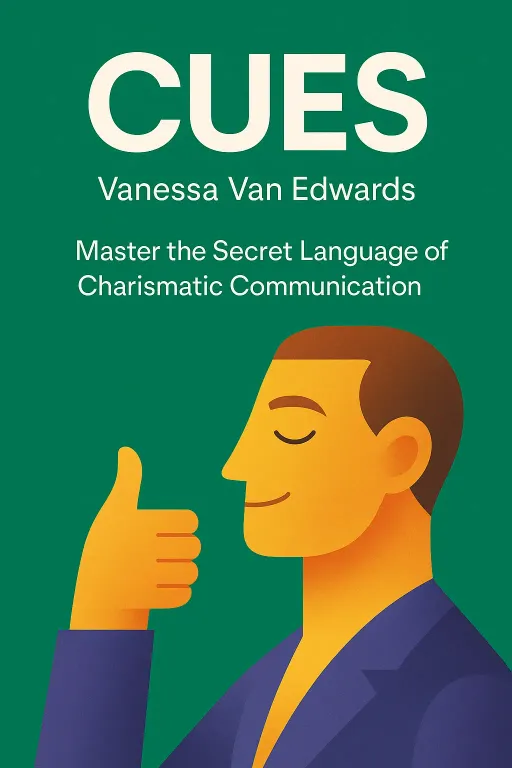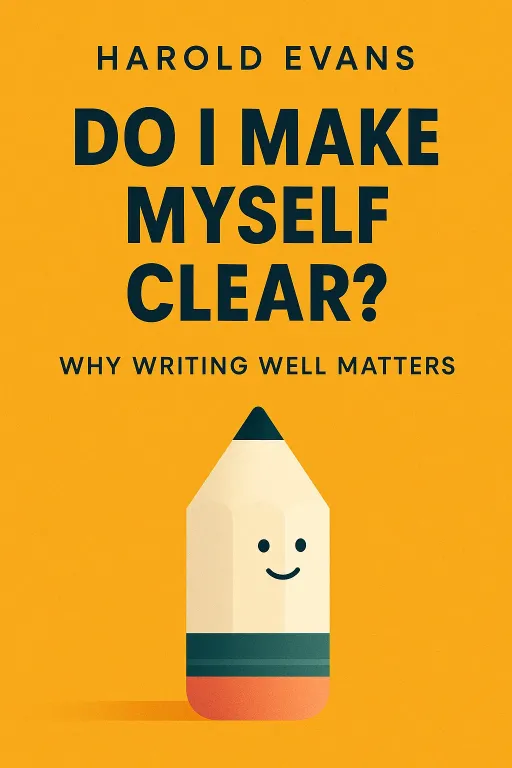
Weaponized Words
11 minGolden Hook & Introduction
SECTION
Michelle: Most of us think the worst thing a typo can do is make you look a bit silly in an email. What if the real danger of bad writing isn't a typo, but a perfectly grammatical sentence that helps crash a global economy or hide a fatal defect in millions of cars? Mark: Whoa, that's a heavy opening. You're saying a misplaced comma didn't cause the 2008 recession? I find that hard to believe. But seriously, that sounds less like a style guide and more like a thriller. Michelle: That's the explosive core of Do I Make Myself Clear?: Why Writing Well Matters by Sir Harold Evans. And he argues it's exactly that—a high-stakes battle for clarity. Mark: Sir Harold Evans... that name carries some weight. He wasn't just some grammar guru, right? He was one of the most famous newspaper editors of the 20th century, knighted for his work in journalism. He famously took on powerful institutions. Michelle: Exactly. He was the editor of The Sunday Times during its most celebrated period of investigative journalism. And he saw unclear language as one of the most powerful, and dangerous, institutions of all. He argues it’s a moral issue, not just a stylistic one. Mark: A moral issue. I like that. It’s not about being pedantic, it’s about consequences. So, where does this linguistic crime spree begin?
The Hidden Catastrophe of 'Foggy' Language
SECTION
Michelle: It begins with what Evans calls "the fog." This is the dense, cloudy, often deliberately confusing language used in business, politics, and law. It’s the jargon, the euphemisms, the passive voice—all designed to obscure meaning rather than reveal it. Mark: The fog. It’s the perfect word for it. It’s that feeling you get reading a corporate memo or a legal document where you understand all the words individually, but the sentences together mean absolutely nothing. It’s like word-salad. Michelle: Precisely. And Evans’s most powerful point is that this fog provides cover for catastrophic failures. He dives deep into the 2008 financial crisis. For years, we heard these incredibly complex terms being thrown around: "collateralized debt obligations," "mortgage-backed securities," "credit default swaps." Mark: Oh man, my eyes glaze over just hearing them now. It was like a secret language that only Wall Street wizards were supposed to understand. Michelle: And that was the point! Evans argues this language was a smokescreen. Investment banks were bundling incredibly risky subprime mortgages—loans given to people who likely couldn't pay them back—and packaging them into these complex products. They slapped a fancy, impenetrable name on them, the rating agencies gave them a thumbs-up, and investors bought them without a clue about the toxic mess hidden inside. Mark: So the complexity of the language was a feature, not a bug. It was designed to make people feel too intimidated to ask the simple question: "Wait, what am I actually buying?" Michelle: Exactly. The book highlights how millions of people signed mortgage agreements with convoluted language they couldn't possibly understand. The fog made it impossible for regulators, journalists, and even many investors to see the cliff everyone was sprinting towards. When the housing market inevitably turned, those toxic assets imploded, and the entire global economy went with them. It was a crisis caused, in large part, by a failure of clear communication. Mark: That is infuriating. It’s one thing to be outsmarted; it’s another to be deliberately confused into ruin. That’s not just bad writing; it’s a weapon. Are there other examples where this fog has had, say, more direct life-or-death consequences? Michelle: Absolutely. And this one is chilling. Evans tells the story of the General Motors ignition switch scandal. For over a decade, from the early 2000s, millions of GM cars had a fatal flaw. The ignition switch was so poorly designed that a slight bump from the driver's knee, or even the weight of a heavy keychain, could knock the key out of the "On" position. Mark: Okay, that’s annoying. The radio goes off, maybe the power steering. Michelle: It was far worse. When the key switched off, it shut down the engine and, crucially, disabled the airbags. So you could be driving at 70 miles per hour, lose all power, and have no airbags to protect you in the crash that was likely to follow. Mark: That’s horrifying. And they knew about this? Michelle: They did. Complaints poured in for years. But inside GM, the language used to describe the problem was a masterclass in corporate fog. Instead of calling it a dangerous stalling defect, they framed it as a "customer convenience" issue. The internal reports talked about "customer feedback" and the "perception" of a problem. Mark: "Customer convenience"? My car turning into a powerless, airbag-less metal coffin is an inconvenience? Come on. Michelle: It gets worse. Evans points out that the company actively suppressed the most dangerous-sounding words. An internal investigation later found that engineers were told to avoid using words like "stall," "defect," or "safety" in their reports. They were creating a linguistic bubble to protect themselves from liability. Mark: They were editing the truth. Michelle: Yes. And the consequences were devastating. The book cites that over 124 deaths and hundreds of injuries were directly linked to this single, deliberately obscured flaw. It took more than a decade for a full recall. The fog of corporate-speak didn't just hide a problem; it buried the victims. Mark: Wow. From a global recession to fatal car crashes... all enabled by foggy language. It’s like Evans is putting the entire English language on trial. This is genuinely terrifying. Is there any hope? How do we fight this fog?
The Churchill Method: Wielding Simplicity as a Weapon
SECTION
Michelle: There is. And that’s the second half of the book, which is all about empowerment. Evans argues that the antidote to fog is radical clarity. And his hero, the ultimate fog-cutter, is Winston Churchill. Mark: Churchill. I always think of him as this grand, eloquent orator with these booming, complex speeches. Is that who we're supposed to emulate? Michelle: That’s the common misconception. Evans tells this fantastic story from Churchill's school days. He was terrible at Latin. He couldn't stand the rigid, convoluted grammar rules, which he called "absolute rigmarole." While his cleverer classmates went on to master Latin and Greek, Churchill was stuck in the lowest division, forced to learn the fundamentals of simple English sentence structure. Mark: So his greatest strength came from what was seen as his biggest weakness? Michelle: Precisely. He said that by being drilled in basic English, he got the architecture of the sentence into his "bones." He learned to build with simple, sturdy, Anglo-Saxon words. He chose purpose over pretension. He wasn't trying to sound smart; he was trying to be understood and to persuade. Mark: I love that. It wasn't about a lack of intelligence; it was a deliberate choice for a different kind of power. So how did this play out in his leadership? Michelle: The perfect example is from February 1941. This was one of the darkest moments of World War II. Britain stood virtually alone against Hitler. They were running out of money, ships, and weapons. Their only real hope was help from the United States, but America was still officially neutral and deeply isolationist. Mark: The stakes couldn't be higher. What does he do? Michelle: He gives a radio address, broadcast directly to President Roosevelt and the American people. He could have used complex diplomatic language. He could have given a long, detailed list of needs. Instead, after laying out the grim reality, he ends with one of the most powerful sentences in history. He says: "Give us the tools and we will finish the job!" Mark: Chills. Just hearing it gives me chills. It’s so simple, but it’s all there. Michelle: Think about it. It’s active. It’s a clear request. It’s a promise. It’s confident, not begging. That single, ten-word sentence cut through all the political fog, all the debate and hesitation. It was a direct, human appeal that galvanized American support and, you could argue, changed the course of the war. It’s the polar opposite of GM's "customer convenience" memo. One is a scalpel that reveals truth; the other is a fog that hides it. Mark: Okay, so clarity isn't about being simple-minded, it's about being sharp. It's a scalpel, not a sledgehammer. That makes so much more sense. But for those of us not trying to win a world war, what are the practical "tools" Evans talks about? Michelle: He gives a whole toolbox. A big one is to kill what he calls "zombie nouns." These are verbs or adjectives that have been turned into clunky, lifeless nouns, usually by adding "-tion," "-ment," or "-ance." Mark: Zombie nouns! I love it. Give me an example. Michelle: Okay, a classic corporate sentence would be: "The implementation of the new policy will be the responsibility of the management team." It’s passive, it’s clunky. Mark: And it’s a zombie. It’s dead on the page. Michelle: Exactly. Evans would slash it and say: "The management team will implement the new policy." Or even better: "Managers will implement the new policy." It’s shorter, it’s active, it’s clear. You know who is doing what. You've killed the zombie and brought the sentence back to life. Mark: That’s such a simple shift, but it changes everything. It forces accountability. You can't hide behind "implementation" anymore. It makes me think about the book's reception. It’s widely praised, but some readers have found his political examples, especially his critiques of certain modern politicians, to be a bit polarizing. Did you get that sense? Michelle: I can see why. Evans was a journalist to his core, and he believed passionately that clear language was essential for a healthy democracy. So when he sees political language designed to mislead, he calls it out, and he doesn't pull his punches. For him, analyzing a politician's speech for clarity wasn't a partisan act; it was a defense of the truth itself. Whether you agree with his specific targets or not, his underlying principle is consistent: words have consequences, especially from the powerful.
Synthesis & Takeaways
SECTION
Mark: That really brings it all together. The fog of corporate jargon, the passive voice of bureaucracy, the doublespeak of politics—it’s all part of the same problem. It’s language that’s designed to numb us, to make us stop asking questions. Michelle: And that’s why Evans’s ultimate point is that clarity is a form of courage. It takes courage to be simple and direct, because it means you can be held accountable. You can't hide. Obfuscation, on the other hand, allows for negligence, incompetence, and even malice to hide in plain sight. Mark: It makes you wonder, where in our own lives—at work, in the news we read, in the contracts we sign—are we letting 'fog' get in the way of the truth? It’s a bit of a daunting thought. Michelle: It is, but the solution can be simple. Evans empowers us to be the fog-cutters. Mark: I like that. Maybe the one thing we can all do is, the next time we hear a jargon-filled phrase or a sentence that doesn't quite make sense, we just ask a simple question: "What does that actually mean?" Michelle: That's a great challenge. It's the first step in reclaiming clarity. We'd love to hear from our listeners. What's the worst piece of gobbledygook or corporate jargon you've ever encountered? The kind of sentence that just made you want to throw your hands up. Share it with us on our social channels. Mark: Please do. Let's build a museum of bad writing. It’ll be a warning to future generations. Michelle: A noble cause. In the end, Do I Make Myself Clear? is more than a writing guide. It’s a call to arms for anyone who believes that truth matters, and that the words we choose are the first line of defense in protecting it. Mark: This is Aibrary, signing off.
